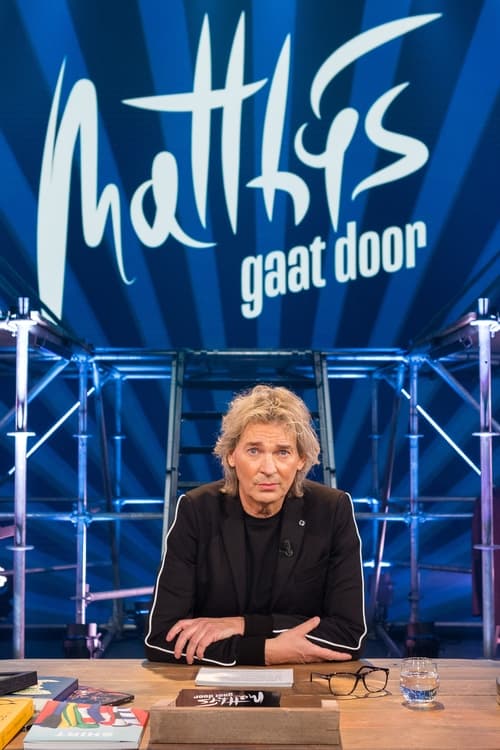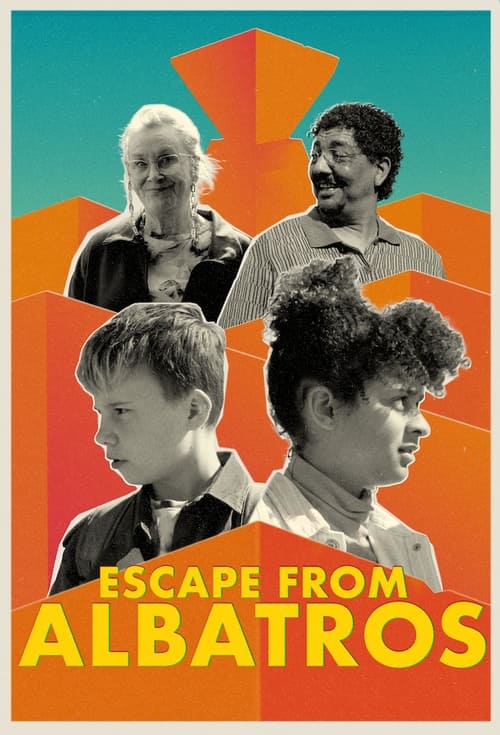
Ask Your Own Question
What is the plot?
In "Episode 110" of "Lisa," the episode opens with Lisa sitting at her kitchen table, staring blankly at a half-finished cup of coffee. The morning light filters through the window, casting a warm glow on her face, but her expression is one of deep contemplation. She is grappling with the aftermath of a recent confrontation with her estranged father, which has left her feeling both angry and vulnerable. As she absentmindedly stirs her coffee, her phone buzzes with a message from her best friend, Mia, asking if they can meet to talk.
The scene shifts to a local café where Lisa and Mia meet. The café is bustling with activity, and the aroma of freshly brewed coffee fills the air. Lisa, still visibly shaken, shares her feelings about her father's sudden reappearance in her life after years of absence. Mia listens intently, offering support and encouragement. Lisa expresses her desire to confront her father about the pain he caused her family, but she is torn between wanting closure and fearing the emotional fallout. Mia urges her to take control of the situation and not let her father dictate her feelings any longer.
Later that day, Lisa decides to visit her father's house, a modest home in a quiet neighborhood. As she approaches the front door, her heart races, and she hesitates for a moment, contemplating whether she should turn back. However, she steels herself and knocks. Her father, surprised to see her, opens the door with a mix of apprehension and hope. The tension is palpable as they exchange awkward greetings. Lisa's father invites her inside, and she reluctantly steps in, her emotions swirling between anger and longing.
Inside, the atmosphere is heavy with unspoken words. Lisa confronts her father about his absence and the hurt it caused her and her mother. He tries to explain his reasons, but Lisa feels that his excuses are insufficient. The conversation escalates as Lisa's frustration boils over, and she accuses him of being selfish. Her father, visibly affected, attempts to defend himself, but Lisa cuts him off, demanding to know why he thinks he can just waltz back into her life after abandoning them. The argument reaches a climax when Lisa, in a moment of raw emotion, tells him that she doesn't need him anymore.
After the confrontation, Lisa storms out of the house, tears streaming down her face. She feels a mix of relief and sorrow, having finally expressed her feelings but also feeling the weight of unresolved issues. As she walks down the street, she reflects on her childhood memories, both good and bad, and the impact her father's absence has had on her life. The camera captures her conflicted emotions, showcasing her strength and vulnerability.
The next scene transitions to Lisa at home, where she finds solace in her art. She begins to paint, using bold strokes and vibrant colors to express her turmoil. The canvas becomes a cathartic outlet for her emotions, and as she paints, she feels a sense of empowerment. The act of creation allows her to process her feelings and reclaim her narrative. The scene is interspersed with flashbacks of her childhood, highlighting moments of joy and pain, reinforcing her journey of self-discovery.
Later, Mia visits Lisa to check on her. They sit together in the living room, surrounded by Lisa's artwork. Mia encourages Lisa to channel her emotions into her art and suggests they organize a small exhibition to showcase her work. Lisa is hesitant at first, fearing judgment, but Mia reassures her that it's a way to share her story and connect with others. The idea begins to resonate with Lisa, and she starts to see it as an opportunity for healing.
As the episode progresses, Lisa begins to prepare for the exhibition. She works tirelessly on her pieces, pouring her heart into each stroke. The preparation process is both exhilarating and daunting, as she grapples with self-doubt and the fear of vulnerability. The montage of her working on her art is interspersed with moments of her reflecting on her relationship with her father, illustrating her growth and determination to move forward.
The day of the exhibition arrives, and the atmosphere is electric with anticipation. The gallery is filled with friends, family, and strangers, all eager to see Lisa's work. As she stands by her paintings, she feels a mix of pride and anxiety. When people begin to engage with her art, sharing their interpretations and emotions, Lisa realizes the power of her story and the connection it fosters. The moment is transformative for her, as she embraces her identity as an artist and a survivor.
In the final moments of the episode, Lisa receives a text from her father, expressing his regret and a desire to reconnect. She stares at the message, her heart racing as she contemplates her next move. The episode closes with a close-up of her face, reflecting a blend of hope and uncertainty about the future, leaving viewers eager to see how she will navigate this new chapter in her life.
What is the ending?
In the ending of "Lisa," season 1, episode 110, Lisa confronts her past and makes a pivotal decision about her future. The episode culminates in a tense confrontation with her estranged father, leading to a moment of emotional catharsis. Lisa ultimately chooses to embrace her independence, leaving behind the toxic relationships that have held her back. The episode closes with Lisa stepping into a new chapter of her life, symbolizing hope and resilience.
As the episode unfolds, the scene opens in Lisa's small, cluttered apartment, where she sits at her desk, surrounded by scattered papers and photographs. The weight of her past hangs heavily in the air, and her expression is one of deep contemplation. She reflects on her tumultuous relationship with her father, which has been a recurring theme throughout the season. The camera lingers on her face, capturing the mix of anger and sadness that defines her internal struggle.
The scene shifts to a flashback, where we see a younger Lisa arguing with her father. The tension is palpable as harsh words are exchanged, revealing the deep-seated issues that have plagued their relationship. This moment serves as a catalyst for Lisa's current emotional state, and the audience can feel her pain and longing for resolution.
Returning to the present, Lisa receives a phone call from her father, who is attempting to reach out after years of silence. The conversation is fraught with tension; Lisa's voice trembles as she grapples with her feelings of betrayal and the desire for closure. She ultimately decides to meet him, a choice that signifies her willingness to confront her past head-on.
The next scene takes place in a dimly lit diner, where Lisa waits anxiously at a booth. The atmosphere is thick with anticipation as she fidgets with her hands, her heart racing. When her father arrives, the air is charged with unresolved emotions. Their conversation begins awkwardly, filled with pauses and hesitant words. Lisa's father expresses regret, but Lisa's guarded demeanor reveals her struggle to forgive.
As the dialogue unfolds, Lisa's emotions shift from anger to vulnerability. She shares her experiences of feeling abandoned and hurt, her voice breaking as she recounts the impact of their fractured relationship. Her father listens, visibly moved, and for the first time, there is a glimmer of understanding between them. The scene captures the complexity of familial love and the difficulty of reconciliation.
In a pivotal moment, Lisa stands up, her decision clear. She tells her father that while she appreciates his attempt to reconnect, she cannot allow him back into her life in the same way. This declaration is both empowering and heartbreaking, as Lisa asserts her independence and acknowledges her worth. The camera captures her resolute expression, a stark contrast to the uncertainty that plagued her earlier.
The final scene transitions to Lisa walking away from the diner, the sun setting in the background. The warm light envelops her, symbolizing a new beginning. As she strides forward, there is a sense of liberation in her movements. The episode closes with a shot of Lisa looking ahead, her face reflecting a mix of hope and determination. She has chosen to embrace her future, leaving behind the shadows of her past.
In this conclusion, Lisa's journey is one of self-discovery and empowerment. Each character's fate is intertwined with her decision; her father is left to grapple with the consequences of his actions, while Lisa steps into a new chapter, ready to forge her own path. The episode encapsulates the themes of resilience, the complexity of familial relationships, and the importance of self-acceptance.
Is there a post-credit scene?
In "Episode 110" of the TV show "Lisa," there is indeed a post-credit scene that adds an intriguing layer to the episode's conclusion.
As the credits roll, the screen fades to black before transitioning to a dimly lit café, where Lisa is seen sitting alone at a corner table. The atmosphere is quiet, with soft jazz music playing in the background, creating a reflective mood. Lisa stares into her cup of coffee, her expression a mix of contemplation and uncertainty.
Suddenly, the door swings open, and a figure enters, casting a long shadow across the floor. It's a familiar face--someone from Lisa's past, whose presence immediately shifts the emotional tone of the scene. The camera captures Lisa's startled reaction, her eyes widening as she recognizes the person.
The figure approaches her table, and there's a palpable tension in the air. Lisa's heart races, and her internal conflict is evident; she grapples with feelings of nostalgia, anger, and unresolved issues. The scene lingers on their exchange, filled with unspoken words and heavy glances, hinting at a complicated history that is far from over.
As the scene fades out, the audience is left with a sense of anticipation and curiosity about what this unexpected reunion might mean for Lisa's journey moving forward. The post-credit scene effectively sets the stage for future developments, leaving viewers eager for the next episode.
How does Lisa's career aspirations evolve in this episode?
Throughout Episode 110, Lisa is presented with a pivotal opportunity at work that could advance her career. However, she struggles with self-doubt and the fear of failure, which is exacerbated by her colleagues' skepticism. This internal conflict drives her to seek advice from her mentor, who encourages her to embrace her unique perspective.
What challenges does Lisa face in her personal relationships in Episode 110?
In Episode 110, Lisa grapples with the fallout of her recent decisions, particularly her strained relationship with her best friend, Mia. The tension escalates when Mia confronts Lisa about her choices, leading to an emotional confrontation that reveals deep-seated insecurities and fears of abandonment within Lisa.
What role does Lisa's family play in her decisions during Episode 110?
Lisa's family dynamics are explored in Episode 110, particularly her relationship with her mother, who has high expectations for her. Lisa feels torn between pursuing her own dreams and fulfilling her mother's vision for her life. This conflict is highlighted during a family dinner where Lisa's mother subtly criticizes her choices, prompting Lisa to reflect on her identity.
How does the episode depict Lisa's emotional state throughout the story?
In Episode 110, Lisa's emotional state fluctuates significantly. Initially, she is hopeful and excited about her career prospects, but as the episode progresses, her anxiety and self-doubt surface, particularly during key moments of confrontation with Mia and her mother. The visual storytelling captures her internal struggle through close-ups of her expressions and moments of solitude.
What significant event occurs that alters Lisa's perspective on friendship in this episode?
A significant event in Episode 110 occurs when Lisa learns a shocking secret about Mia that challenges her understanding of their friendship. This revelation forces Lisa to reevaluate her trust in Mia and her own values, leading to a poignant moment of reflection where she must decide whether to confront Mia or to let the issue fester.
Is this family friendly?
In "Episode 110" of the show "Lisa," there are several elements that may be considered potentially objectionable or upsetting for children or sensitive viewers.
-
Emotional Conflict: The episode features intense emotional scenes where characters experience significant personal struggles, which may be distressing for younger viewers.
-
Family Tension: There are moments of conflict within the family that could be uncomfortable, showcasing arguments or disagreements that might resonate negatively with children.
-
Themes of Loss: The episode touches on themes of loss and grief, which could be heavy for sensitive audiences, particularly younger children who may not fully understand these concepts.
-
Dramatic Situations: Some scenes involve dramatic situations that could evoke feelings of anxiety or fear, such as confrontations or moments of high tension.
-
Mature Discussions: There are discussions that may involve mature themes or concepts that could be confusing or inappropriate for younger viewers.
These elements contribute to a narrative that, while rich in character development and emotional depth, may not be suitable for all audiences, particularly children.

































